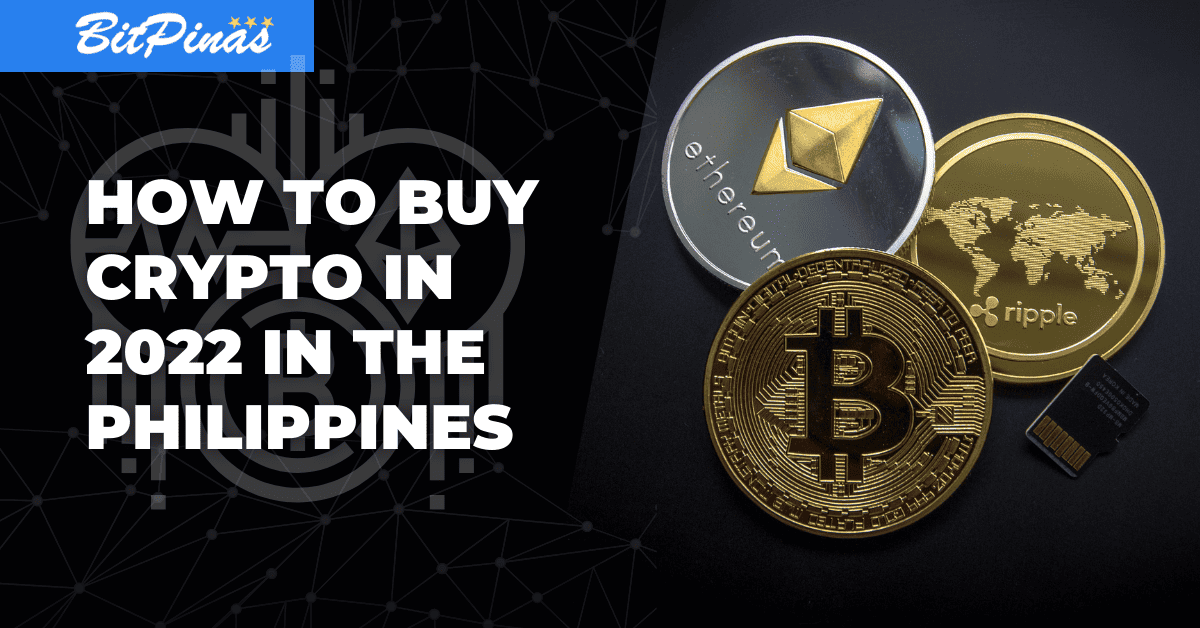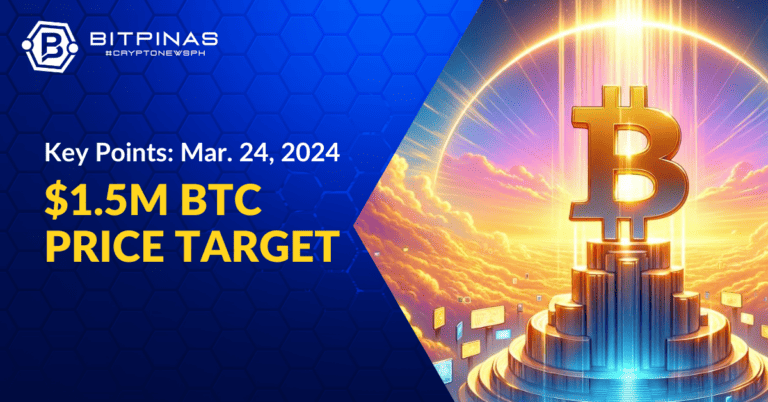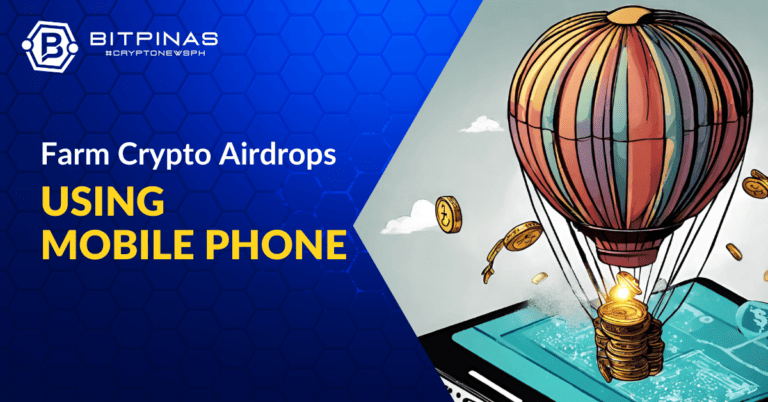A Comprehensive Guide to Buying Cryptocurrency in the Philippines in 2023
Discover the only complete guide to buy cryptocurrency in the Philippines. Learn about popular exchanges, platforms, and storing your assets

Completely updated with new content in April 2023. No old content is retained.
The Philippines has emerged as a rapidly growing market for cryptocurrency and blockchain technology. With an increasing number of Filipinos becoming aware of digital assets and their potential benefits, the demand for cryptocurrency in the country has surged.
- Growing adoption: More Filipinos are recognizing the potential of cryptocurrencies as an alternative investment, store of value, and means of payment.
- Remittances: The Philippines is one of the world’s largest remittance markets, and cryptocurrencies offer a faster, cheaper, and more secure way to send money across borders.
- Financial inclusion: Over 70% of the Philippine population is unbanked or underbanked, and cryptocurrencies provide an opportunity for them to access financial services without traditional banking infrastructure.
BitPinas.com aims to be the go-to resource for Filipinos interested in learning about and participating in the cryptocurrency market.
Overview of the Philippine Cryptocurrency Landscape
The Philippine cryptocurrency landscape is diverse and rapidly evolving, driven by a combination of local innovation and global trends. Here, we provide an overview of the key aspects of the Philippine cryptocurrency ecosystem.
1. Regulatory Environment
- Bangko Sentral ng Pilipinas (BSP): The Central Bank of the Philippines has issued guidelines on cryptocurrency exchanges, requiring them to register as remittance and transfer companies and comply with Anti-Money Laundering (AML) and Know Your Customer (KYC) regulations.
- Securities and Exchange Commission (SEC): The SEC is responsible for regulating Initial Coin Offerings (ICOs), Security Token Offerings (STOs), and other digital asset-related activities, ensuring compliance with securities laws.
2. Local Cryptocurrency Exchanges
- Licensed exchanges: There are several licensed cryptocurrency exchanges operating in the Philippines, offering users a secure and regulated platform to buy, sell, and trade cryptocurrencies.
- P2P platforms: Peer-to-peer (P2P) platforms have gained popularity in the Philippines, allowing users to trade cryptocurrencies directly with each other without the need for a central intermediary.
3. Cryptocurrency Adoption and Use Cases
- Payments and remittances: Cryptocurrencies are increasingly being used for cross-border payments and remittances, providing a more cost-effective and efficient alternative to traditional money transfer services.
- Decentralized finance (DeFi): The growth of DeFi platforms has opened up new opportunities for Filipinos to earn interest, borrow, and lend using cryptocurrencies.
- Non-fungible tokens (NFTs): The NFT market has gained traction in the Philippines, with local artists and creators leveraging blockchain technology to tokenize and sell digital art, music, and collectibles.
In the following sections, we will delve deeper into the process of buying cryptocurrencies in the Philippines and explore the various factors to consider when choosing a cryptocurrency exchange.
Popular Cryptocurrency Exchanges in the Philippines
A variety of cryptocurrency exchanges are available to Filipinos looking to buy, sell, and trade digital assets. These platforms cater to different user preferences, offering a range of features and services. Here, we highlight some popular cryptocurrency exchanges in the Philippines.
1. Centralized Exchanges (CEX)
Centralized exchanges (CEX) are platforms that facilitate cryptocurrency trading through a central intermediary. They often provide a user-friendly interface, a range of trading pairs, and customer support services. Some popular centralized exchanges in the Philippines include:
- Coins.ph: One of the first licensed cryptocurrency exchanges in the Philippines, Coins.ph allows users to buy and sell Bitcoin, Ethereum, Ripple, and Bitcoin Cash using PHP. The platform also offers mobile wallet services, bill payments, and remittance services.
- PDAX (Philippine Digital Asset Exchange): PDAX is a BSP-regulated cryptocurrency exchange that offers a variety of digital assets, including Bitcoin, Ethereum, Ripple, and several other cryptocurrencies. PDAX provides advanced trading features, competitive fees, and PHP trading pairs for local investors.
- Binance: Binance is a global cryptocurrency exchange that also supports Filipino users. With an extensive selection of trading pairs, low fees, and advanced trading features, Binance is a popular choice for traders looking for access to a wide range of digital assets.
Click here for a list of licensed cryptocurrecy exchanges in the Philippines.
2. Decentralized Exchanges (DEX)
Decentralized exchanges (DEX) enable users to trade cryptocurrencies directly with one another without the need for a central authority. These platforms prioritize security, privacy, and user control. Some popular decentralized exchanges available to Filipino users include:
- Uniswap: A popular Ethereum-based DEX, Uniswap allows users to trade a variety of ERC-20 tokens without the need for KYC or account registration. Uniswap utilizes an automated market maker (AMM) model, which enables instant and seamless token swaps.
- PancakeSwap: Built on the Binance Smart Chain, PancakeSwap is a DEX that offers fast and low-cost transactions. Users can trade BEP-20 tokens, participate in yield farming, and stake their tokens to earn rewards.
3. Peer-to-Peer (P2P) Platforms
Update: Unfortunately, both LocalBitcoins and Paxful have shut down.
Peer-to-peer (P2P) platforms connect buyers and sellers directly, allowing them to negotiate and execute trades without the need for an intermediary. P2P platforms can offer increased privacy and more flexible payment methods. Some popular P2P platforms in the Philippines include:
LocalBitcoins: LocalBitcoins is a global P2P marketplace that enables users to trade Bitcoin directly with one another. The platform supports various payment methods, including bank transfers, cash deposits, and mobile wallets.Paxful: Paxful is another P2P platform that allows users to buy and sell Bitcoin using a wide range of payment options. With a user-friendly interface and robust security features, Paxful is a popular choice for Filipinos looking to trade cryptocurrencies in a P2P environment.
By exploring these popular cryptocurrency exchanges in the Philippines, users can find a platform that best meets their needs and preferences, whether they prioritize security, trading options, or convenience.
How to Choose the Right Cryptocurrency Exchange
Selecting the right cryptocurrency exchange is crucial for a seamless and secure trading experience. With numerous options available in the Philippines, it’s essential to consider various factors to find the platform that best aligns with your needs and preferences.
1. Security Measures
The safety of your digital assets should be a top priority when selecting a cryptocurrency exchange. Look for platforms with robust security measures, such as:
- Two-factor authentication (2FA): This adds an extra layer of security by requiring users to input a unique code, typically sent to their mobile device, in addition to their password.
- Cold storage: Exchanges that store a significant portion of user funds offline in cold storage can reduce the risk of hacking and theft.
- Encryption: Ensure that the exchange uses strong encryption protocols to protect user data and communication.
2. Regulatory Compliance (KYC and AML)
Choose an exchange that complies with local cryptocurrency regulations to ensure a secure and transparent trading environment. This includes adhering to Anti-Money Laundering (AML) and Know Your Customer (KYC) guidelines. In the Philippines, the Bangko Sentral ng Pilipinas (BSP) regulates cryptocurrency exchanges, so opt for platforms that are licensed and registered with the BSP.
3. Fees and Charges
Different exchanges have varying fee structures, which can impact your overall trading costs. Consider the following fees when choosing an exchange:
- Trading fees: These are charged for each transaction executed on the platform. Some exchanges offer lower fees for higher trading volumes or use a maker-taker model to incentivize liquidity provision.
- Deposit and withdrawal fees: Exchanges may charge fees for depositing or withdrawing funds, especially when converting between fiat and cryptocurrencies. Choose a platform with competitive fees to minimize costs.
4. Trading Pairs and Liquidity
Select an exchange that offers a variety of trading pairs and sufficient liquidity to ensure smooth and efficient trading. Look for platforms that support popular cryptocurrencies like Bitcoin, Ethereum, and Ripple, as well as local currency (PHP) trading pairs for added convenience.
5. Customer Support and User Experience
A user-friendly interface and responsive customer support are essential for a seamless trading experience. Choose an exchange that provides:
- Intuitive user interface: The platform should be easy to navigate and use, even for beginners.
- Customer support: Opt for exchanges that offer prompt and helpful customer service through various channels, such as email, live chat, or phone.
By considering these factors, you can select a cryptocurrency exchange that provides a secure, user-friendly, and cost-effective platform for buying, selling, and trading digital assets in the Philippines.
Step-by-Step Guide to Buying Cryptocurrency in the Philippines
Buying cryptocurrency in the Philippines is a straightforward process once you’ve selected a suitable exchange. Follow this step-by-step guide to purchase digital assets securely and efficiently.
1. Creating an Account on a Cryptocurrency Exchange
The first step is to register for an account on your chosen cryptocurrency exchange. This typically involves providing your:
- Email address: Use a secure and unique email address dedicated to your cryptocurrency activities.
- Password: Create a strong and unique password to protect your account from unauthorized access.
- Two-factor authentication (2FA): Enable 2FA, which adds an extra layer of security by requiring a unique code (usually sent to your mobile device) in addition to your password.
2. Verifying Your Identity (KYC Process)
Most exchanges require users to complete a Know Your Customer (KYC) process to comply with regulatory requirements. This process typically involves submitting:
- Identification documents: Valid government-issued IDs, such as a passport or driver’s license.
- Proof of address: Utility bills or bank statements that display your current address.
- Selfie or video verification: Some exchanges may ask for a selfie or video call to verify your identity.
3. Depositing Funds (PHP, USD, or Other Fiat Currency)
Once your account is verified, you can deposit funds to begin trading. Follow the exchange’s instructions to deposit your chosen fiat currency (e.g., PHP or USD) using your preferred payment method, such as:
- Bank transfer: Transfer funds from your bank account to the exchange’s bank account.
- Credit or debit card: Use your credit or debit card to deposit funds directly to the exchange.
- E-wallet: Some exchanges accept popular e-wallet services like GCash, PayMaya, or PayPal.
4. Placing a Buy Order (Market or Limit Order)
After depositing funds, you can proceed to buy your desired cryptocurrency. There are two common order types:
- Market order: This order executes immediately at the current market price. It’s the quickest and easiest way to buy cryptocurrency but may result in higher fees or unfavorable prices during periods of high volatility.
- Limit order: This order allows you to specify a target price at which you want to buy the cryptocurrency. The order will execute only when the market price reaches your target. Limit orders can help you get a better price but may not execute immediately or at all if the target price is not met.
Note that if you buy in a wallet like Coins.ph, there is no market order or limit order.
5. Storing Your Cryptocurrency in a Secure Wallet
After purchasing your cryptocurrency, it’s essential to store your assets securely in a cryptocurrency wallet. Choose a wallet based on your security preferences and ease of use:
- Hardware wallets: These are physical devices that store your cryptocurrency offline, providing the highest level of security. Examples include Ledger and Trezor.
- Mobile and web wallets: These wallets store your cryptocurrency online and are easily accessible through your mobile device or web browser. Examples include Coins.ph, Trust Wallet, and MetaMask.
By following these steps, you can successfully buy cryptocurrency in the Philippines and store your assets securely in a suitable wallet. Remember to practice safe trading and storage habits to protect your digital assets from potential risks.
Cryptocurrency Wallets: Ensuring Safe Storage
Proper storage of your digital assets is critical to safeguarding your investment. Cryptocurrency wallets offer varying levels of security, accessibility, and functionality. Here, we explore the different types of wallets and how they ensure the safe storage of your cryptocurrencies.
1. Hardware Wallets (Cold Storage)
Hardware wallets provide the highest level of security by storing your private keys offline, on a physical device. These wallets are less susceptible to hacking and theft, making them ideal for long-term storage of large amounts of cryptocurrency.
- Advantages:
- Highest level of security for your private keys.
- Resistant to online hacks and malware.
- Compatible with various cryptocurrencies.
- Popular hardware wallets: Ledger Nano S, Trezor One, and Coldcard.
2. Desktop Wallets
Desktop wallets are software applications installed on your computer, allowing you to manage and store your cryptocurrencies. While more secure than web-based wallets, they are still susceptible to hacking if your computer is compromised.
- Advantages:
- More secure than web wallets.
- Complete control of your private keys.
- Supports various cryptocurrencies and features.
- Popular desktop wallets: Electrum, Exodus, and Bitcoin Core.
3. Mobile Wallets
Mobile wallets are smartphone applications that enable you to manage and store your cryptocurrencies on the go. These wallets offer convenience and functionality, but their security relies on the security of your mobile device.
- Advantages:
- Easy access to your cryptocurrencies.
- Supports various cryptocurrencies and features.
- QR code scanning for quick transactions.
- Popular mobile wallets: Trust Wallet, Coinomi, and Mycelium.
4. Web Wallets
Web wallets are accessible through your web browser, providing an easy-to-use interface for managing your cryptocurrencies. However, they are considered less secure than other wallet options, as your private keys are stored online and potentially vulnerable to hacking.
- Advantages:
- User-friendly and easily accessible.
- Suitable for small amounts and everyday transactions.
- Compatible with multiple devices and platforms.
- Popular web wallets: Blockchain.com, MetaMask, and MyEtherWallet.
5. Paper Wallets
Paper wallets are physical printouts containing your cryptocurrency’s private and public keys. They offer offline storage, similar to hardware wallets, but require proper handling and storage to prevent damage or loss.
- Advantages:
- Completely offline storage.
- Inexpensive and straightforward to create.
- Resistant to online hacks and malware.
- Considerations: Must be securely stored and protected from physical damage, and requires extra care when transferring funds.
Choosing the right cryptocurrency wallet depends on your security preferences, the amount of cryptocurrency you hold, and how frequently you need to access your funds. By selecting a suitable wallet and following best practices for safe storage, you can ensure the security of your digital assets in the evolving world of cryptocurrencies.
Navigating Cryptocurrency Regulations in the Philippines
Understanding cryptocurrency regulations in the Philippines is essential for ensuring a secure and compliant trading environment. The Bangko Sentral ng Pilipinas (BSP) oversees the regulation of digital assets, with a focus on promoting consumer protection, financial stability, and anti-money laundering efforts.
1. Virtual Currency (VC) Regulation (BSP Circular No. 944)
The BSP has implemented Circular No. 944, which establishes guidelines for Virtual Currency (VC) exchanges operating in the Philippines. Key aspects of this regulation include:
- Registration: VC exchanges must register with the BSP as a remittance and transfer company.
- Anti-Money Laundering (AML) and Counter-Terrorist Financing (CTF): VC exchanges must implement AML and CTF policies, including Know Your Customer (KYC) requirements, transaction monitoring, and reporting suspicious activities.
- Consumer Protection: VC exchanges must provide clear and accurate information to users, including the risks and costs associated with trading cryptocurrencies.
2. Initial Coin Offerings (ICOs) and Security Token Offerings (STOs)
In the Philippines, the Securities and Exchange Commission (SEC) oversees the regulation of Initial Coin Offerings (ICOs) and Security Token Offerings (STOs). Key aspects of these regulations include:
- Registration: Companies planning to conduct an ICO or STO must register with the SEC and submit relevant documentation, such as whitepapers, token sale terms, and company details.
- Investor Protection: The SEC reviews ICO and STO proposals to ensure they adhere to disclosure requirements and protect investor interests.
3. Cryptocurrency Taxes
Cryptocurrency transactions may be subject to taxation in the Philippines, depending on the nature of the transaction and the parties involved. Key aspects of cryptocurrency taxation include:
- Capital Gains Tax: Profits from the sale of cryptocurrencies may be subject to capital gains tax, depending on the holding period and amount of the gain.
- Income Tax: If you receive cryptocurrencies as payment for goods or services, it may be considered taxable income.
- Value-Added Tax (VAT): Certain cryptocurrency transactions may be subject to VAT if they involve the supply of goods or services.
4. Staying Compliant with Cryptocurrency Regulations
To ensure compliance with cryptocurrency regulations in the Philippines, consider the following best practices:
- Choose Regulated Exchanges: Opt for cryptocurrency exchanges that are registered with the BSP and adhere to AML, CTF, and KYC requirements.
- Understand Tax Obligations: Familiarize yourself with the tax implications of your cryptocurrency transactions and consult with a tax professional if needed.
- Stay Informed: Monitor updates and changes to cryptocurrency regulations in the Philippines to ensure continued compliance.
By understanding and adhering to the cryptocurrency regulations in the Philippines, you can safely and responsibly participate in the digital asset ecosystem while minimizing potential legal and financial risks.
Exploring Cryptocurrency Investment Opportunities
Cryptocurrencies offer various investment opportunities for individuals looking to diversify their portfolios and potentially capitalize on the growth of digital assets. It’s essential to carefully evaluate your risk tolerance and investment goals before venturing into the cryptocurrency market. Here, we explore different investment options within the cryptocurrency space.
1. Long-Term Investing (Hodling)
Long-term investing, commonly referred to as “hodling” in the cryptocurrency community, involves buying and holding cryptocurrencies for an extended period, typically years. This strategy is based on the belief that the value of digital assets will appreciate over time.
- Advantages:
- Potential for significant returns if the market continues to grow.
- Requires less time and effort compared to active trading.
- Reduces the impact of short-term market fluctuations.
2. Active Trading
Active trading involves buying and selling cryptocurrencies more frequently to capitalize on short-term price movements. This approach requires a deeper understanding of market trends and technical analysis.
- Advantages:
- Potential for higher returns in a shorter time frame.
- Flexibility to adapt to changing market conditions.
- Opportunity to profit from both rising and falling markets.
3. Initial Coin Offerings (ICOs) and Security Token Offerings (STOs)
Investing in Initial Coin Offerings (ICOs) or Security Token Offerings (STOs) involves purchasing newly issued tokens or coins from startups or established companies. These investments can offer high returns but also carry significant risks.
- Advantages:
- Early access to innovative projects and technologies.
- Potential for high returns if the project succeeds.
- Ability to participate in the growth of the blockchain ecosystem.
4. Decentralized Finance (DeFi)
Decentralized Finance (DeFi) refers to a range of financial services built on blockchain technology, such as lending, borrowing, and yield farming. These services can offer attractive investment opportunities and passive income streams.
- Advantages:
- Access to innovative financial services and products.
- Potential for higher yields compared to traditional investments.
- Support for the development of decentralized financial infrastructure.
5. Cryptocurrency Mining and Staking
Cryptocurrency mining and staking involve contributing computing power or holding specific cryptocurrencies to validate transactions and secure the network. In return, participants receive rewards in the form of new coins or tokens.
- Advantages:
- Passive income generated from mining or staking rewards.
- Contribute to the security and stability of the blockchain network.
- Exposure to various cryptocurrencies through staking and mining.
When exploring cryptocurrency investment opportunities, it’s essential to conduct thorough research, understand the risks, and only invest what you can afford to lose. Diversifying your investments and maintaining a long-term perspective can help maximize your potential returns in this rapidly evolving market.
Conclusion and Future Prospects for Cryptocurrency in the Philippines
The cryptocurrency landscape in the Philippines has grown significantly in recent years, driven by increasing awareness, technological advancements, and a supportive regulatory environment. As the market continues to evolve, the future prospects for digital assets in the Philippines appear promising.
1. Fintech and Cryptocurrency Adoption
- Financial inclusion: Cryptocurrencies and fintech innovations can help promote financial inclusion, particularly for the unbanked and underbanked population in the Philippines.
- Remittances: Digital assets can play a crucial role in streamlining remittance services, providing faster and more cost-effective solutions for overseas Filipino workers and their families.
- Mobile and digital payments: The widespread adoption of mobile and digital payments can facilitate cryptocurrency adoption, as more Filipinos become comfortable with digital transactions.
2. Regulatory Developments
- Supportive regulations: The Bangko Sentral ng Pilipinas (BSP) has shown a proactive approach to regulating cryptocurrencies, fostering a supportive environment for the growth of the digital asset market.
- Consumer protection: Future regulatory developments may focus on enhancing consumer protection and security, as the BSP continues to monitor the impact of cryptocurrencies on the financial system.
3. Investment Opportunities
- Growing market: As the cryptocurrency market matures, more investment opportunities may arise for individuals and institutions alike, allowing for diversification and potential growth.
- DeFi and NFTs: Emerging trends, such as decentralized finance (DeFi) and non-fungible tokens (NFTs), may provide unique investment opportunities and contribute to the broader adoption of digital assets in the Philippines.
4. Technological Advancements
- Blockchain applications: The increasing adoption of blockchain technology across various industries can help drive the growth of the cryptocurrency market, as more use cases emerge for digital assets.
- Scalability and security: Ongoing technological advancements may improve the scalability, security, and usability of cryptocurrencies, further enhancing their appeal to a broader audience.
In conclusion, the future prospects for cryptocurrency in the Philippines appear bright, as the market continues to grow and evolve. By staying informed and adapting to changes, both new and experienced investors can navigate the world of digital assets and potentially capitalize on the many opportunities it presents.
This article is published on BitPinas: How to Buy Crypto in the Philippines in 2023




